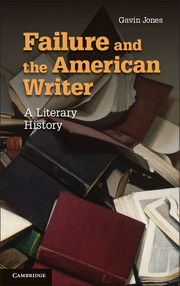Book contents
- Frontmatter
- Dedication
- Contents
- List of Illustrations
- Acknowledgments
- Introduction
- Chapter 1 Falling for Edgar Allan Poe
- Chapter 2 Herman Melville in the Doldrums
- Chapter 3 The Disappointments of Henry David Thoreau
- Chapter 4 Stephen Crane’s Fake War
- Chapter 5 The Double Failure of Mark Twain
- Chapter 6 Sarah Orne Jewett Falling Short
- Chapter 7 The Faltering Style of Henry James
- Conclusion
- Notes
- Index
Chapter 4 - Stephen Crane’s Fake War
Published online by Cambridge University Press: 05 June 2014
- Frontmatter
- Dedication
- Contents
- List of Illustrations
- Acknowledgments
- Introduction
- Chapter 1 Falling for Edgar Allan Poe
- Chapter 2 Herman Melville in the Doldrums
- Chapter 3 The Disappointments of Henry David Thoreau
- Chapter 4 Stephen Crane’s Fake War
- Chapter 5 The Double Failure of Mark Twain
- Chapter 6 Sarah Orne Jewett Falling Short
- Chapter 7 The Faltering Style of Henry James
- Conclusion
- Notes
- Index
Summary
1899 saw the publication of what may be the most printed and distributed pamphlet of all time: Elbert Hubbard’s inspirational essay, A Message to Garcia. Hubbard was a former soap salesman and successful businessman who became a common-sense philosopher of personal uplift and an important exponent of the American Arts and Crafts movement, founding the Roycroft community in East Aurora, New York, in 1895. Like Thoreau, Hubbard worked in the broadly Emersonian tradition of self-help literature, with a particular focus on achieved happiness through service and artisanal individualism. But Hubbard’s relationship to a burgeoning business culture was far less oppositional than Thoreau’s. A Message to Garcia was published in Hubbard’s little magazine, The Philistine, and was soon read by George H. Daniels, a manager of Cornelius Vanderbilt’s New York Central Railroad, who immediately ordered more copies than Hubbard’s Roycroft press could fulfill. Given permission to reprint the pamphlet himself, Daniels distributed hundreds of thousands of copies to the Railroad’s employees; quickly Hubbard’s message was read and distributed by other business and military leaders, both at home and abroad, giving it a possible circulation of around 40 million copies worldwide.
- Type
- Chapter
- Information
- Failure and the American WriterA Literary History, pp. 75 - 94Publisher: Cambridge University PressPrint publication year: 2014



